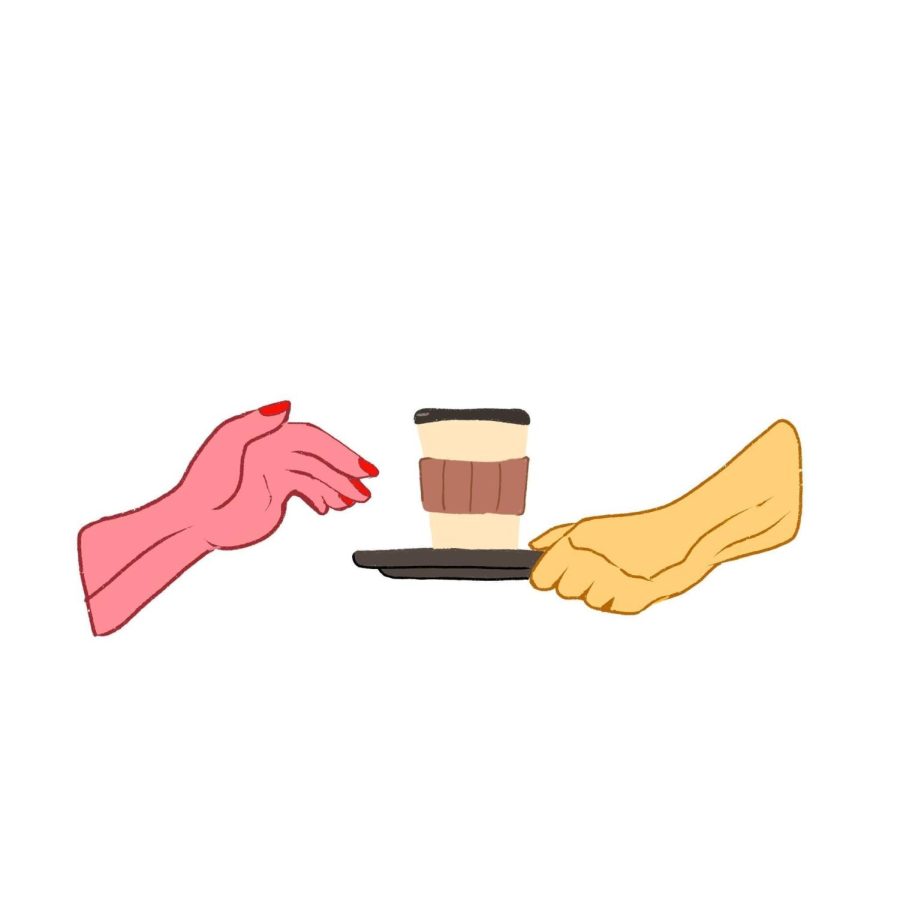Opinion | Everyone needs to work a customer service job
September 27, 2022
I was 15 years old when I got my first customer service job. I had my interview in the squeaky plastic booths of a small town’s frozen custard shop. I even wore dark pants and a thick blouse despite the 80-degree weather, just because I wanted to make a good impression for my first-ever interview.
After a few weeks of working, I experienced my first fiasco.
There was one older gentleman who ordered at the store, claiming to have an online coupon. I explained to him that due to store policy, I could not accept it.
If Marvel was making a new Hulk movie at the time, I would have begged them to cast this man. The vein in his neck began to twitch. His face blushed red. His beady eyes locked on me. And then he started to yell. I don’t even remember what he said to me, but it was along the lines of me being an idiot, that he needed to talk to my boss and that he always used online coupons before.
As time progressed, I realized how entitled customers can behave. A customer told me that her sundae didn’t have enough hot fudge. Another told me that they wanted their order in a cup instead of a cone. It’s not that they asked me to fix it, I didn’t care about that. It’s how they did it — by disrespecting me. To them, I was not a person — I was a worker. I was someone they could demean.
As a worker, I understand that customers are trying to get what they paid for. As a customer, I understand workers are doing their best. Because of my experience as both, I know how to be empathetic in either situation. In a world so focused on money, everyone chooses to spend it and earn it as they see fit. However, the divide between worker and customer keeps growing.
People stigmatize and degrade certain jobs, especially in customer service, food service and janitorial jobs. These jobs are considered undesirable, but why? They’re necessary positions and we all rely on the services these people offer. Customer service workers aren’t doctors, lawyers or other jobs that earn automatic respect, but they’re still just as important in terms of keeping society functioning.
I believe the basis of job stigmatization stems from our societal need to get ahead of everyone else. We’re taught from a young age that we need to “rise above the rest.” We learn that maybe with hard work, unwavering dedication and “picking ourselves up by our bootstraps,” we will finally get there — but that reality is much less tangible than people realize.
There’s no denying that high paying jobs are justifiably valued. Higher paying jobs tend to require more education and specialized training. The difference comes at the level of replaceability of the employee. A skilled brain surgeon is hard to find, whereas a customer service worker comes at a dime a dozen. You’re not special to an employer, but that’s all the more reason to work a customer service job.
You might think replaceability is bad, but I think this is a misconception. I learned quickly that my replaceability worked to my benefit. Unless you’re extremely lucky, most employers will take advantage of you and continue to do so unless you stand up for yourself and set boundaries. You can care for your bosses and managers, but understand that telling them no is not a reflection on your personal relationship with them. Don’t let your employers guilt you, because ultimately you’re working for the betterment of an establishment that doesn’t care for you and will exploit you if given the chance. Replaceability teaches you to stick up for yourself. I learned that so many people were like me — they had the same education, qualifications, skillset and mindset. No one is special or above others in that way.
When you strip a person of their money and their title, you see that they too are made of skin and bone. All people deserve the same respect, and some customers need to stop acting like they’re better or above the workers that are providing them with a service.
Customer service workers serve the public, but they’re still individuals with their own wants, needs and grievances. Maybe a worker is struggling with a family issue, yet they’re forced to work through it. Maybe these workers were there for over eight hours with no break, or maybe they’re just experiencing the burn of being a cog in the never-ending machine of working society. You never know what someone is going through — that’s why no one has a right to treat a worker poorly.
As terrible as working customer service is, there is also a sense of happiness and community in working these types of jobs. I’ve talked to some of the kindest people working in customer service. Customers would go out of their way to compliment or ask me questions, or even sympathize with me during a shift. In turn, I often go out of my way for these types of people. I got to know people, to laugh with them, even if it were just for a few minutes. Sometimes that small but meaningful conversation is enough to brighten both of our days.
Everyone is a customer, and everyone is a worker. It seems like often we forget what it’s like on the other side when we get to clock out at the end of a shift. You need to know what it’s like walking in someone else’s shoes. If you don’t, how can you ever understand others?
It’s easy enough to say that America has a problem with employee exploitation, but until you’ve actually spent time learning the experiences and working in these situations, you will never fully understand.
That’s not to say that a customer service job is a permanent career for everyone, though even if it is, they are still worthy of the same amount of respect and dignity as anyone else. All I’m saying is that every American needs to work a customer service job at least once in their life, however fleeting. It’s the first step in empathy and understanding in a society so foundationalized in the financial and classist divide among all Americans.
Now more than ever, we need compassion. Stop furthering the job hierarchy.
Lynnette Tibbott primarily writes about topics in the sciences and humanities. Write to her at [email protected].









